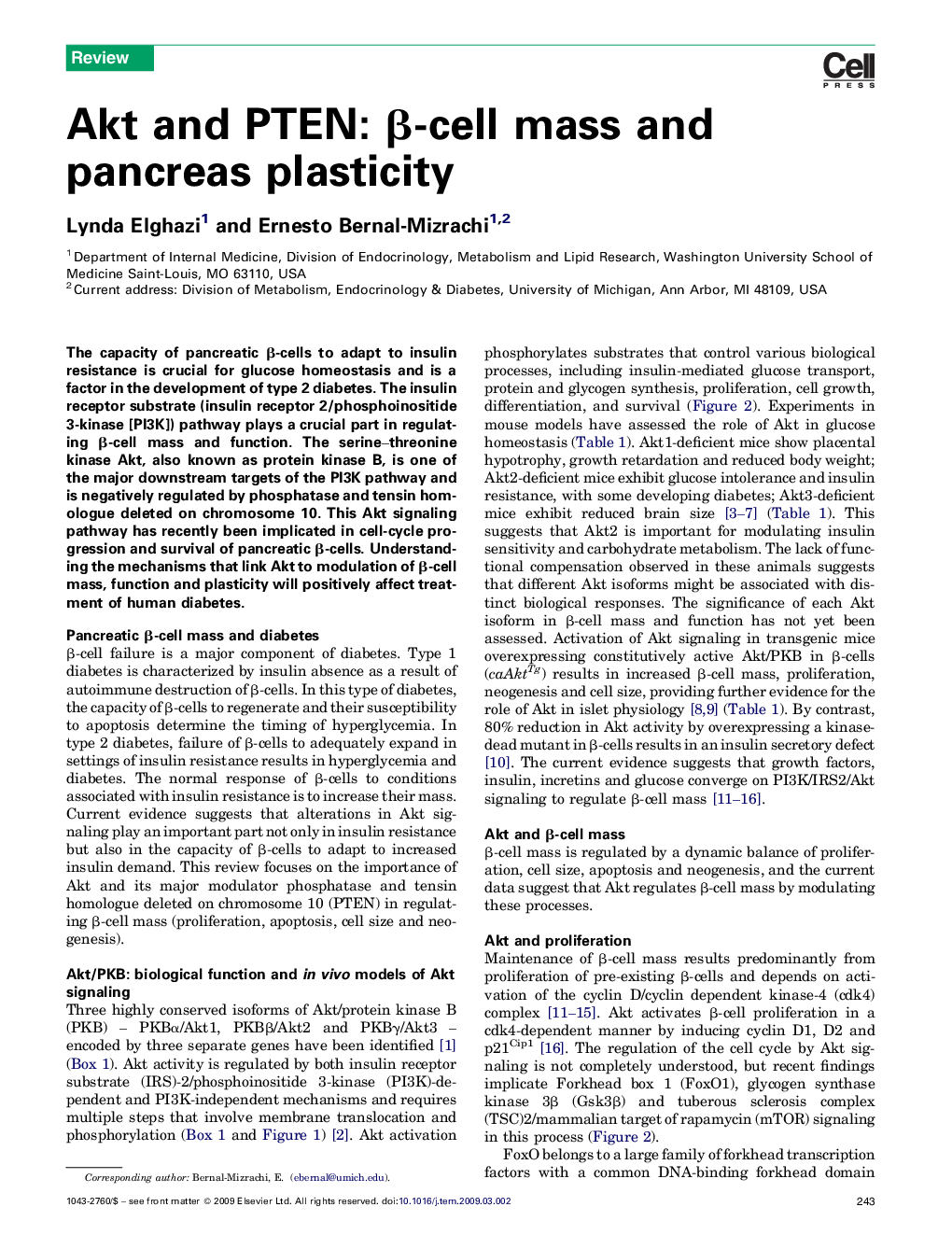| Article ID | Journal | Published Year | Pages | File Type |
|---|---|---|---|---|
| 2810722 | Trends in Endocrinology & Metabolism | 2009 | 9 Pages |
The capacity of pancreatic β-cells to adapt to insulin resistance is crucial for glucose homeostasis and is a factor in the development of type 2 diabetes. The insulin receptor substrate (insulin receptor 2/phosphoinositide 3-kinase [PI3K]) pathway plays a crucial part in regulating β-cell mass and function. The serine–threonine kinase Akt, also known as protein kinase B, is one of the major downstream targets of the PI3K pathway and is negatively regulated by phosphatase and tensin homologue deleted on chromosome 10. This Akt signaling pathway has recently been implicated in cell-cycle progression and survival of pancreatic β-cells. Understanding the mechanisms that link Akt to modulation of β-cell mass, function and plasticity will positively affect treatment of human diabetes.
